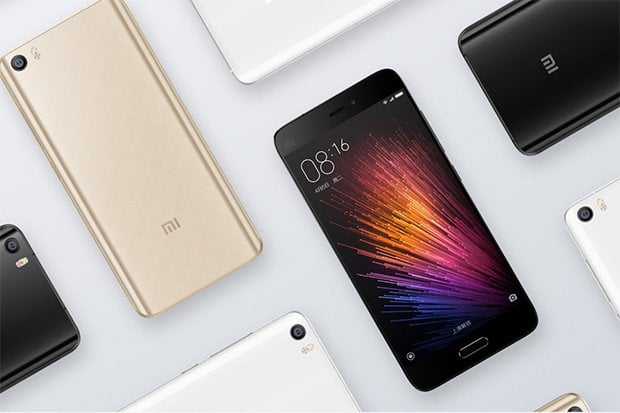Microsoft Sells 1,500 Patents To Xiaomi As The Companies Forge ‘Long Term’ Smartphone Alliance
Microsoft has found a new partner in the smartphone sector in Xiaomi, a major player in China that's looking to expand its reach into other territories. To help it do that, Microsoft sold Xiaomi around 1,500 of its patents for an undisclosed sum. The two also entered into a cross-licensing deal as part of what they're describing as a long-term pact.
Here's the thing—Microsoft doesn't have anywhere near the same level of market share in the smartphone segment as Google with its Android platform or Apple with iOS, but it's still managed to make a few bucks from the category. One way is through royalties and the other is by making its cloud-based programs and services available on other platforms.

As part of the deal with Xiaomi, the Chinese outfit agreed to install various Microsoft software on its phones and tablets. At minimum, you can expect to see Office and Skype pre-installed on Xiamoi's mobile devices.
"This is a very big collaboration agreement between the two companies," Wang Xiang, senior vice president at Xiaomi, told Reuters.
The deal could help Xiaomi have a bigger presence outside China, particularly in the U.S. market. Xiaomi released its first gadget stateside earlier this month, a TV set-top box developed with Google, and also a tablet running Windows, but has yet to release a phone in the U.S. It will be interesting to see what develops out this, as Xiaomi built some compelling handsets at attractive price points.
Another thing to keep an eye on is how this will affect Microsoft's own mobile plans. Just last week, the company announced another round of layoffs as it attempts to streamline its smartphone business.
"Last week we announced the sale of our feature phone business. Today I want to share that we are taking the additional step of streamlining our smartphone hardware business, and we anticipate this will impact up to 1,850 jobs worldwide, up to 1,350 of which are in Finland," Microsoft's Terry Myerson stated in a memo. "These changes are incredibly difficult because of the impact on good people who have contributed greatly to Microsoft."
Myerson also cited a need to be more focused in the company's phone hardware efforts.
Here's the thing—Microsoft doesn't have anywhere near the same level of market share in the smartphone segment as Google with its Android platform or Apple with iOS, but it's still managed to make a few bucks from the category. One way is through royalties and the other is by making its cloud-based programs and services available on other platforms.

As part of the deal with Xiaomi, the Chinese outfit agreed to install various Microsoft software on its phones and tablets. At minimum, you can expect to see Office and Skype pre-installed on Xiamoi's mobile devices.
"This is a very big collaboration agreement between the two companies," Wang Xiang, senior vice president at Xiaomi, told Reuters.
The deal could help Xiaomi have a bigger presence outside China, particularly in the U.S. market. Xiaomi released its first gadget stateside earlier this month, a TV set-top box developed with Google, and also a tablet running Windows, but has yet to release a phone in the U.S. It will be interesting to see what develops out this, as Xiaomi built some compelling handsets at attractive price points.
Another thing to keep an eye on is how this will affect Microsoft's own mobile plans. Just last week, the company announced another round of layoffs as it attempts to streamline its smartphone business.
"Last week we announced the sale of our feature phone business. Today I want to share that we are taking the additional step of streamlining our smartphone hardware business, and we anticipate this will impact up to 1,850 jobs worldwide, up to 1,350 of which are in Finland," Microsoft's Terry Myerson stated in a memo. "These changes are incredibly difficult because of the impact on good people who have contributed greatly to Microsoft."
Myerson also cited a need to be more focused in the company's phone hardware efforts.

